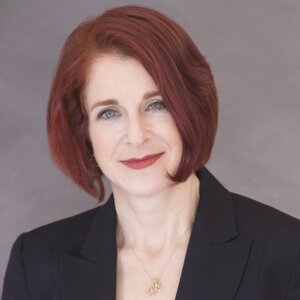Am I my brother’s keeper? If so, what’s my responsibility to rescue him from the YouTube rabbit hole?
By Liana Finck
“A Bintel Brief,” the Forward’s signature advice column, is now a podcast hosted by Ginna Green and Lynn Harris. Listen to the latest episode here (or wherever you get your podcasts), and click here to sign up for a weekly newsletter with backstories from the hosts. Need advice? Email bintel@forward.com, or leave a voicemail at (201-) 540-9728.
Dear Bintel,
My brother is an elected official in a small town, an exurban part of the state. He’s a Democrat and a union man, but at his grassroots level of politics, political philosophy doesn’t really matter. “Can you get the roads paved?” is what counts.
He recently discovered YouTube, which means that he is now refusing to get vaccinated. It also means that he is now worried about the influx of immigrants into his village of 4,000 people.
“How many immigrants can you have?” I asked once. “Two, three?”
He got very serious and said: “12.”
It’s hard to watch my brother change like this. And I’m sure it’s unfair to his constituents, who elected a very different man than the one he is becoming. Not to mention that my wife is immunocompromised — so the fact that my brother is buying into these conspiracy theories around the COVID-19 vaccine means we can’t even see him safely. What can I do?
Sincerely,
O Brother, Where Art Thou
Dear O Brother Where Art Thou,
The Hebrew Bible talks about brothers pretty early on. The children of the first humans were brothers who also had issues that resulted in fratricide. The question underpinning your letter is the same question at the core of Genesis, Chapter 4: Am I my brother’s keeper? Where — and this can be asked by both brothers here — do your responsibilities begin and end with regard to each other? And with regard to the people in your worlds?
It’s very Jewish of you to be concerned about the townspeople and his constituents. It’s also interesting to us that you lead with the political philosophy — the immigration, the local voters — and then at the end mention that your wife is immunocompromised. That element gets buried a little bit. It feels like you might be concerned — in a similar way to another of our advice-seekers, Aunt Enemy — that you might lose your relationship with your brother.
We’re not sure that your brother’s responsibility to his voters is your responsibility. But it could be a way to open a conversation with him generated from the values you still share: Democracy? Unions? And…family? Doesn’t mean everything or guarantee anything, but he likely continues to care about community, service, the power of the collective and our responsibility towards one another.
Courtesy of The Forward
So maybe that’s your opening, to talk first about the vaccine on a personal level. Maybe it’s as simple as, “I would like to hang out with you. You are my brother. I love my wife. My wife loves you. We both want to see you. You have a chance to see both of us safely. And you are actively not choosing that by refusing the vaccine.”
Worst case, he continues to refuse. That’s hard. If you make a clear offer — “If you get vaccinated, then we can be together as a family” — and it is rejected, that will be a huge blow. Again, it reminds us of Aunt Enemy, who was debating whether to approach her sibling about their adult children’s affinity for far-right conspiracies, worried she might find that the sibling actually agreed with their offspring’s new politics. “What do I find out that I don’t want to know?” she asked. “What do I find out that I don’t want to have to process?” That reality can be scary.
But you do have to go back to your brother and have another conversation about what it means to be together, what you need for your wife to be able to participate and be part of the family.
And then there’s another conversation to be had, a bigger picture than that, which is about the values. This will be up to you, O Brother, in terms of how much you feel like you can take on.
It goes back to the original question. And by “original,” we mean Genesis. “Am I my brother’s keeper” was said with a bit of sarcasm by Cain, but it’s serious, too. Yes, we are all our siblings’ keepers. But that doesn’t mean that there’s only one course of action that will express our keeper-hood or keeper-ness. We still have to balance our responsibility to our community, to our family, to our constituents, with what makes sense for us.
Good luck!
Bintel
To hear more of our advice to O Brother Where Art thou, download the latest episode of “A Bintel Brief: The Jewish advice podcast” here or on any podcast platform. Send your dilemmas about Jewish-American life, identity, culture, politics or your personal hopes and dreams to bintel@forward.com, or leave a voicemail at (201-) 540-9728.
A message from our CEO & publisher Rachel Fishman Feddersen
I hope you appreciated this article. Before you go, I’d like to ask you to please support the Forward’s award-winning, nonprofit journalism during this critical time.
We’ve set a goal to raise $260,000 by December 31. That’s an ambitious goal, but one that will give us the resources we need to invest in the high quality news, opinion, analysis and cultural coverage that isn’t available anywhere else.
If you feel inspired to make an impact, now is the time to give something back. Join us as a member at your most generous level.
— Rachel Fishman Feddersen, Publisher and CEO
